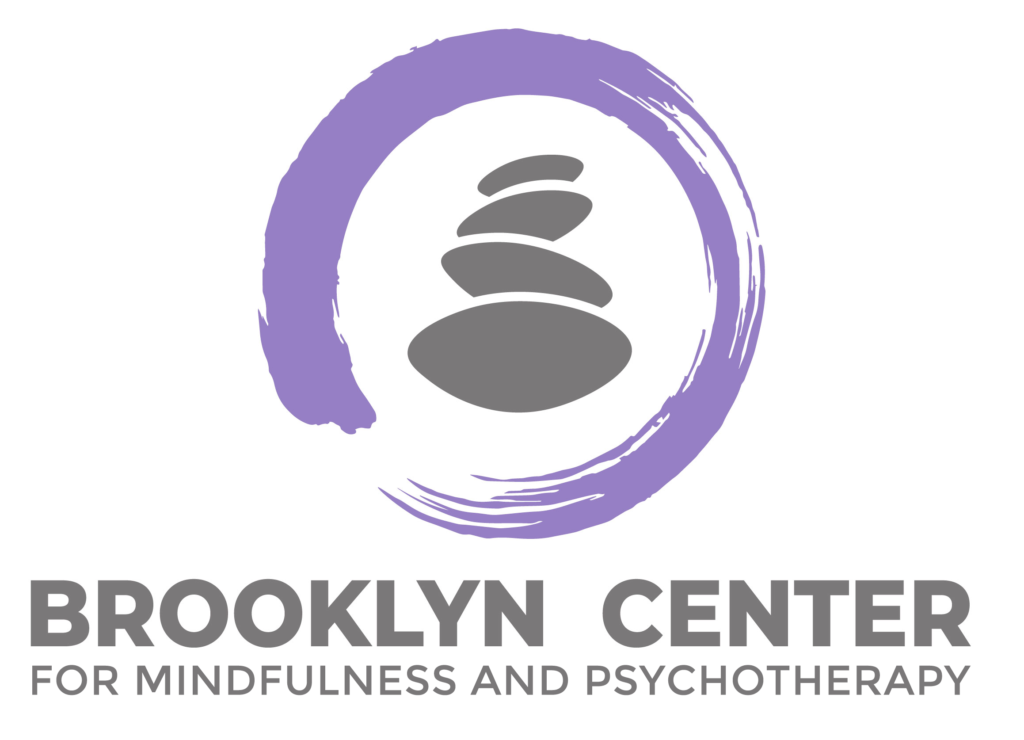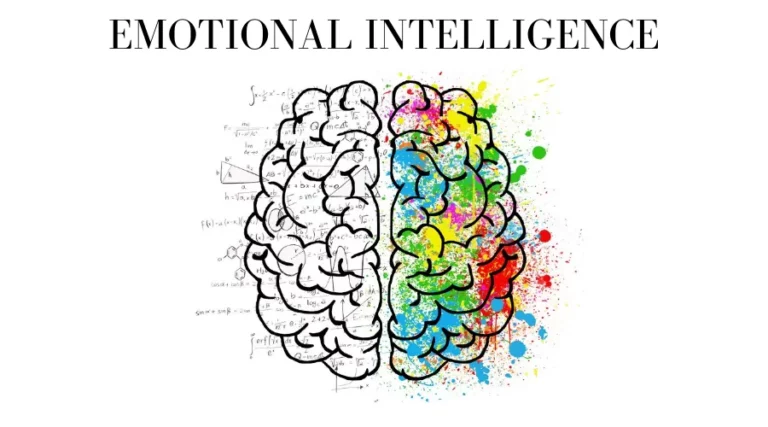Welcome to New York, the vibrant city that never sleeps! In the bustling metropolis of opportunity and ambition, it’s crucial to navigate through the complexities of life and nurture meaningful connections. One of the critical tools for achieving personal growth and fostering successful relationships is emotional intelligence. In this blog series, we’ll explore the art of building emotional intelligence, equipping you with essential skills to enhance your life and cultivate harmonious bonds with those around you. Get ready to embark on a transformative journey of self-discovery and learn how to thrive in the heart of the Big Apple.
What is Emotional Intelligence?
Emotional intelligence is the ability to identify, understand, and manage one’s emotions and recognize and respond appropriately to the feelings of others. It involves regulating one’s emotions to promote positive interactions and relationships with others. Emotional intelligence has become increasingly important in many fields, including business, education, and mental health. New York City is home to many organizations and resources dedicated to developing emotional intelligence skills in individuals and groups. These include workshops, training programs, and coaching services to help individuals enhance their emotional intelligence and improve their personal and professional lives.
What are the Components of Emotional Intelligence?
Emotional intelligence refers to a person’s ability to recognize, understand, manage, and utilize their emotions effectively, as well as to identify and empathize with the feelings of others. The components of emotional intelligence, often referred to as EI or EQ, include the following:
- Self-awareness: This involves being in tune with your own emotions, strengths, weaknesses, values, and motivations. It means understanding how your emotions affect your thoughts and behaviors.
- Self-regulation involves effectively managing and controlling your emotions, impulses, and reactions. It includes staying calm under pressure, adapting to changing circumstances, and maintaining a positive attitude.
- Motivation: This component is about being driven and passionate about your goals. It involves setting high standards for yourself, being resilient in the face of setbacks, and being motivated to achieve personal and professional success.
- Empathy: Empathy is the ability to understand and share the feelings of others. It involves accurately perceiving and understanding others’ emotions, perspectives, and needs. Empathy is crucial for building and maintaining healthy relationships.
- Social skills: Social skills involve effectively managing relationships and interactions with others. It includes skills such as communication, active listening, conflict resolution, teamwork, and collaboration. Socially skilled individuals can establish rapport, build networks, and influence others positively.
Benefits of Developing Emotional Intelligence
Developing emotional intelligence in New York or any other location can benefit individuals and society. Here are some specific benefits of developing emotional intelligence in New York:
- Enhanced Interpersonal Relationships: Emotional intelligence involves understanding and managing emotions in oneself and others. By developing emotional intelligence, individuals in New York can cultivate better interpersonal relationships. They become more empathetic, understanding, and compassionate, improving communication, conflict resolution, and collaboration.
- Increased Workplace Productivity: Emotional intelligence plays a vital role in the workplace. Developing emotional intelligence in New York can lead to more effective leadership, better teamwork, and increased employee satisfaction. People with higher emotional intelligence tend to have better self-awareness, manage stress more effectively, and have more vital social skills, all of which contribute to higher productivity and better performance in the workplace.
- Better Mental Health and Well-being: Emotional intelligence involves recognizing and managing one’s emotions, which can positively impact mental health. In New York, where the pace of life can be fast and demanding, developing emotional intelligence can help individuals handle stress, cope with challenges, and maintain overall well-being. It promotes self-care, resilience, and seeking support when needed.
- Improved Decision-Making: Emotional intelligence involves understanding and regulating emotions, which can lead to better decision-making. In New York, where people often face complex choices and high-pressure situations, developing emotional intelligence helps individuals make more informed decisions by considering rational and emotional factors. This can lead to more balanced and effective outcomes.
- Enhanced Cultural Sensitivity and Inclusivity: New York is known for its diverse population and multicultural environment. Developing emotional intelligence fosters cultural sensitivity, empathy, and open-mindedness, allowing individuals to appreciate and respect different perspectives, beliefs, and backgrounds. It promotes inclusivity and helps build stronger connections within the community.
- Reduced Conflict and Violence: Emotional intelligence contributes to conflict resolution and violence prevention. By understanding and managing emotions effectively, individuals in New York can navigate disagreements, diffuse tense situations, and promote peaceful solutions. Developing emotional intelligence cultivates a culture of understanding, empathy, and tolerance, which can positively impact reducing conflict and violence.
Developing Emotional Intelligence in Relationships
Developing emotional intelligence in relationships is essential for building strong and healthy connections with others. Emotional intelligence involves understanding and managing your own emotions and recognizing and responding appropriately to the feelings of others.

Many resources are available in New York for individuals and couples who want to improve their emotional intelligence skills. These include therapy sessions, workshops, and support groups focusing on communication skills, empathy, and self-awareness. By developing emotional intelligence, individuals can improve their relationships with romantic partners, family members, friends, and colleagues, leading to greater happiness and success in all areas of life.
The Impact of Emotional Intelligence on Relationships
Emotional intelligence, or EQ, is the ability to understand and manage one’s emotions and those of others. Regarding relationships in New York City, having high emotional intelligence can make all the difference. Couples with solid EQ skills can better communicate effectively, navigate conflicts, and build deeper connections.
Research has shown that individuals with higher levels of emotional intelligence tend to have more satisfying relationships. They are better equipped to express their needs and feelings healthily, leading to more open communication and fewer misunderstandings. Additionally, people with high EQ are often more empathetic and understanding, which helps them connect with their partners on a deeper level. In short, emotional intelligence plays a crucial role in the success of relationships in New York City and beyond.

Tips for Enhancing Your Emotional Intelligence
Enhancing emotional intelligence is a valuable skill that can positively impact your life, including personal relationships, professional success, and overall well-being. Here are some tips for enhancing your emotional intelligence in New York:
- Practice self-awareness: Pay attention to your emotions, thoughts, and reactions. Take the time to reflect on your feelings and understand why you might be experiencing them. This self-awareness will help you better understand and manage your emotions.
- Develop empathy: Empathy is the ability to understand and share the feelings of others. Practice active listening and try to put yourself in someone else’s shoes. Show genuine interest in others’ perspectives and experiences. Engage in volunteer work or community activities that expose you to diverse individuals and situations.
- Manage stress effectively: New York can be a fast-paced and stressful environment. Learn healthy coping mechanisms to manage stress effectively. Practice relaxation techniques such as deep breathing, meditation, or mindfulness exercises. Regular exercise, a balanced diet, and adequate sleep are crucial in managing stress.
- Improve communication skills: Effective communication is essential for building solid relationships. Practice active listening, which involves giving full attention to the speaker, maintaining eye contact, and avoiding interrupting. Express yourself clearly and assertively while being mindful of others’ emotions and opinions.
- Seek feedback and learn from it: Actively seek feedback from others, whether it’s from colleagues, friends, or mentors. Be open to constructive criticism and use it as an opportunity to learn and grow. Reflect on the feedback and make necessary adjustments to improve your emotional intelligence.
- Develop emotional resilience: Emotional resilience allows you to bounce back from setbacks and challenges. New York can be a demanding city, so developing strength is crucial. Cultivate a positive mindset, practice self-care, build a support network of friends and mentors, and develop problem-solving skills to navigate difficult situations.
- Cultivate cultural intelligence: New York is a melting pot of diverse cultures, backgrounds, and perspectives. Cultivating cultural intelligence will help you navigate social interactions with sensitivity and respect. Educate yourself about different cultures, engage in multicultural events, and challenge your biases and assumptions.
- Practice mindfulness: Mindfulness involves being fully present at the moment, without judgment. Engage in mindfulness practices such as meditation or yoga to cultivate awareness of your emotions and thoughts. This practice can help you regulate your emotions and make more conscious choices.
- Develop a growth mindset: Embrace a growth mindset, which is the belief that your abilities and intelligence can be developed through dedication and hard work. Embrace challenges, view setbacks as opportunities for growth, and approach new experiences with curiosity and an open mind.
- Seek professional help if needed: If your emotional intelligence struggles significantly impact your well-being or relationships, consider seeking guidance from a therapist or counselor. They can provide valuable insights and strategies tailored to your specific needs.
Conclusion
In conclusion, cultivating emotional intelligence is a transformative journey that can significantly enhance our lives and relationships. We can embark on self-discovery and growth by attending workshops and programs at Brooklyn Mindful in New York, learning valuable skills to navigate our emotions effectively. Through mindfulness practices and expert guidance, we can better understand ourselves and others, improving our communication, empathy, and overall emotional well-being. Don’t hesitate to contact Brooklyn Mindful and embark on this enriching experience that has the power to impact every aspect of your life positively. Start your emotional intelligence journey today!




